Table of Contents
Daily Current Affairs for Government Exams:
Today Current Affairs: 5th February 2020 for UPSC IAS exams, State PSC exams, SSC CGL, State SSC, RRB, Railways, Banking Exam & IBPS, etc
Contents:
- Anganwadis in Urban Areas.
- Purified Terephthalic Acid (PTA).
- Global medical data leak.
- Burhi Dihing river.
- DefExpo 2020.
- Online Training (iGOT) programme.
- World heritage site certificate.
- Reverse osmosis (RO).
- East Asia Summit.
- Other important current affairs.
1. Anganwadis in Urban Areas:
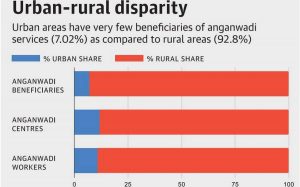
Recently, the government’s response to a Right to Information (RTI) query has revealed that for every 100 Anganwadi beneficiaries in the country, only 7 are in urban areas.
- Anganwadis or day-care centres are set up under the Integrated Child Development Services (ICDS) by the Women and Child Development Ministry to provide a package of six services.
- The services include supplementary nutrition; pre-school non-formal education; immunization, nutrition and health education; as well as referral services.
- The aim of the scheme is to reduce infant mortality and child malnutrition.
- Beneficiaries include children in the age group of six months to six years, and pregnant women and lactating mothers.
The number of beneficiaries:
- Out of 7.95 crore beneficiaries of the Anganwadi scheme in the country as on September 30, 2019, only 55 lakh were registered at urban anganwadis.
- Less number of anganwadi centres in urban areas
- There is 13.79 lakh anganwadis operational across the country, out of which 9.31 lakh centres are linked to the government’s web-enabled data entry system called Rapid Reporting System.
- Of that linked anganwadis, 1.09 lakh centres are in urban areas and the remaining 8.22 lakh are in rural areas of the country
2.Purified Terephthalic Acid (PTA):
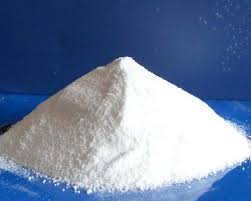
During her Budget speech, Finance Minister said the government was abolishing in “public interest” an anti-dumping duty that was levied on imports of a chemical called PTA.
- Purified Terephthalic Acid (PTA) is a crucial raw material used to make various products, including polyester fabrics. PTA makes up for around 70-80% of a polyester product.
- This includes products like polyester staple fibre and spun yarn. Some sportswear, swimsuits, dresses, trousers, curtains, sofa covers, jackets, car seat covers and bed sheets have a certain proportion of polyester in them.
- The duty had meant importers were paying an extra $27-$160 for every 1,000 kg of PTA that they wanted to import.
- Removing the duty will allow PTA users to source from international markets and may make it as much as $30 per 1,000 kg cheaper than now.
3. Global medical data leak:
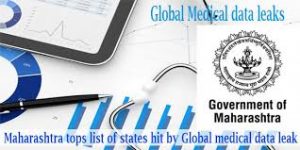
According to a recent report published by Greenbone Sustainable Resilience, a German cybersecurity firm, Medical details of over 120 million Indian patients have been leaked and made freely available on the Internet.
- The report also places Maharashtra at the top of the States affected by the global medical data leak.
- Maharashtra ranks the highest in terms of the number of data troves available online, with 3,08,451 troves offering access to 6,97,89,685 images.
- The next is Karnataka, with 1,82,865 data troves giving access to 1,37,31,001 images.
- The report classifies countries in the “good”, “bad” and “ugly” categories based on the action taken by their governments in stopping it. India ranks second in the “ugly” category, after the U.S.
- The data leak of records includes images of CT scans, X-rays, MRIs and even pictures of the patients.
- The leak is worrying because the affected patients can include anyone from the common working man to politicians and celebrities. In image-driven fields like politics or entertainment, knowledge about certain ailments faced by people from these fields could deal a huge blow to their image.
- The other concern is of fake identities being created using the details, which can be misused in any possible number of ways.
The report says the leak was facilitated by the fact that the Picture Archiving and Communications Systems (PACS) servers, where these details are stored, are not secure and linked to the public Internet without any protection, making them easily accessible to malicious elements.
4.Burhi Dihing river:
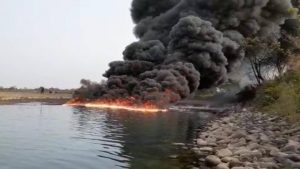
A stretch of the eastern Assam’s Burhi Dihing River was recently on fire for the last two days due to a leakage in the underwater oil pipeline.
- Dihing or Burhi Dihing is a large tributary of the Brahmaputra River in Upper Assam.
- Originates in the Eastern Himalayas (the Patkai Hills) in Arunachal Pradesh and flows through Tinsukia and Dibrugarh Districts in Assam to its confluence with the Brahmaputra at Dihingmukh.
5. DefExpo 2020:

DefExpo, a flagship biennial event of the Ministry of Defence, is being held for the first time in Lucknow (Uttar Pradesh) from 5th to 9th February 2020.
- This is the 11th edition of DefExpo – a mega defence exhibition. DefExpo is one of the largest events of its kind.
The 10th edition of the event was held at Chennai (Tamil Nadu) in 2018. - The main theme of the DefExpo India- 2020 is ‘India: The Emerging Defence Manufacturing Hub’ and the focus will be on ‘Digital Transformation of Defence’.
- DefExpo-2020 promises to bring new technologies, technological solutions, where defence manufacturing companies from India and abroad showcase their products and services in the defence arena, on a single platform. This provides the Indian defence industry with an opportunity to promote its export potential.
- Defence Expo 2020 will showcase the comprehensive spectrum of India’s aerospace, defence and security interests.
- The fifth India Russia Military Industry Conference will be held on the sidelines of the event.
6. Online Training (iGOT) programme :

The Department of Personnel and Training (DoPT) had organised a conference to explore the training requirements of Government officers at various levels of hierarchy.
- DoPT is the nodal department for the training of Government functionaries and is primarily responsible for formulating policies with regard to capacity building and strengthening the Human resources within the government.
Key Points:
- During the conference, it has been decided to widen the scope and coverage of the initiative of Integrated Government Online Training (iGOT) programme which was launched in December 2018.
- iGOT aims to augment the existing training mechanism with online module-based training.
- It also aims to make training inputs available to Government officers on-sight and on-flexi-time basis.
- A consultation paper on ‘Approach to Strategy and Implementation of iGOT 2.0’ was also released.
- iGOT 2.0 will play a major role in achieving a comprehensive and systematic capacity building initiative for the civil servants in the light of the current challenges like lack of political will, lack of communication and coherence, implementation issues, etc.
7. World heritage site certificate:
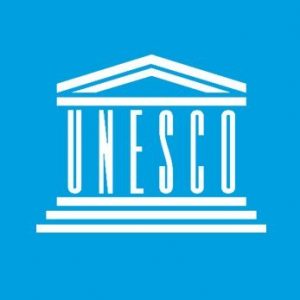
The Chief Minister of Rajasthan will dedicate the United Nations Educational, Scientific and Cultural Organisation (UNESCO) world heritage site certificate for Jaipur to the people on 5th February 2020.
- The walled city of Jaipur, famous for its grid plan-based architecture and buildings constructed with the pink facade, was declared a world heritage site by UNESCO in July 2019.
- A brochure on “Intangible Heritage Promotion Project” would also be released.
Intangible Heritage Promotion Project:
- It is signed between the Tourism Department of Rajasthan and UNESCO and aims at developing 10 new cultural tourism destinations in the State.
- It would be implemented during the next three years at a cost of ₹7.50 crore.
- It will directly benefit about 1,500 artists in the districts such as Jodhpur, Barmer, Jaisalmer and Bikaner, known for folk music and traditional handicrafts.
8.Reverse osmosis (RO):

The Union Environment Ministry has issued a notification to comply with the NGT(National Green Tribunal) order which prohibited the use of reverse osmosis (RO) purifiers in places where total dissolved solids (TDS) in the supplied water are below 500 mg per litre.
- The NGT had ordered a ban on RO filters on the grounds that they wasted water and that, in the process of removing salts, they often deprived drinking water of essential salts, which could affect the nutritional intake of the people.
Background:
- Current BIS regulations consider 500 mg/litre—1,200 mg/litre of total dissolved solids, which consist of salts and some organic matter, as acceptable.
Osmosis and RO:
- Osmosis involves ‘a solvent (such as water) naturally moving from an area of low solute concentration, through a membrane, to an area of high solute concentration.
- A reverse osmosis system applies an external pressure to reverse the natural flow of solvent and so seawater or brackish water is pressurised against one surface of the membrane, causing salt-depleted water to move across the membrane, releasing clean water from the low-pressure side’.
RO plants:
- Construction of the RO plants required troves of groundwater. Freshwater that was sucked out and is replaced by saltwater, rendering it unfit for the residents around the desalination plants.
- On average, it costs about ₹900 crores to build a 100 MLD-plant and, as the Chennai experience has shown, about five years for a plant to be set up.
- To remove the salt required, there has to be a source of electricity, either a power plant or a diesel or battery source. Estimates have put this at about 4 units of electricity per 1,000 litres of water.
- It is estimated that it cost ₹3 to produce 100 litres of potable water.
9. East Asia Summit:
The Ministry of External Affairs is to organize East Asia Summit in Chennai between February 6, 2020, and February 7, 2020.
- This is the fifth time the conference is being held in India.
- The first conference was organized in Delhi in 2015, second in Goa in 2016, third in Bhubaneswar in 2018. In 2019, the fourth conference was held in Bangkok.
- The conference is to be held in cooperation with the governments of Australia and Indonesia. More than 100 participants are expected to participate.
- The Conference will bring upon an understanding of all the partners.
- It will foster the spirit of openness and inclusion.
- The summit is important as a guide for ASEAN’s engagement in the Indian Ocean region and the Asia Pacific.
- At the fourteenth East Asia Summit held in 2019, PM Modi mooted the idea of Indo-Pacific Ocean Initiative.
- The Summit is held annually by 16 nations in East Asia, South Asia and South-East Asia.
- The first such summit was held in Kuala Lumpur in 2005. US and Russia are also a part of the summit.
Other important current affairs:
1. The President of India opened the annual “Udyanotsav” of Rashtrapati Bhavan.
- The Mughal Gardens will remain open for the general public from February 5, 2020, to March 08, 2020.
- The Rashtrapati Bhavan, the official residence of the President of India, is flanked by the iconic Mughal gardens spread over 15 acres.
- The gardens are a blend of the Mughal and English style of gardening and are inspired by the Persian Charbagh style. It is replete with canals, fountains, elaborate flower beds, well-trimmed shrubs, and a near-endless variety of flowers.
2. The frequency of the Maitree Express and Bandhan Express trains connecting Bangladesh and India has been increased.
- Maitree Express running between Dhaka and Kolkata will now run 5 days a week.
- Bandhan Express running between Kolkata and Khulna will now be running twice a week.
- The increased frequency of these trains will enhance the connectivity between India and Bangladesh further.
3. Ending decades of free entry to Indian tourists visiting Bhutan, the Bhutanese Government has decided to levy a daily ₹1,200 fee for “regional tourists” from India, the Maldives and Bangladesh, beginning July 2020.
- The fee, called a Sustainable Development Fee (SDF), is meant to help the government deal with burgeoning numbers in tourist traffic, which it is seeking to regulate through a new tourism policy.
- The decision was passed by the National Assembly as a ‘Tourism Levy and Exemption Bill of Bhutan’, 2020. The SDF is considerably lower than the $65 charged to other foreign tourists, who are also charged a compulsory flat “cover charge” of $250 per day.
4. The Minister of Petroleum and Natural Gas Shri Dharmendra Pradhan and the Chairman of Rosneft (Russia’s largest oil-producing company) signed the first-ever term contract.
- According to the contract, India will import 2 million metric tonnes of Urals grade crude oil.
- The agreement was signed between IOCL and Rosneft. The companies discussed on energy cooperation and hydrocarbon enhancement.
- Rosneft is the largest oil-producing company in Russia.
- The company is extended to over 20 countries in the world.
- The company is to bid in the disinvestment of BPCL (Bharat Petroleum Corporation Limited).
- On November 20, 2019, the Union cabinet approved to privatize BPCL selling 52.98% of its stakes to the private sector.
5. The Union Cabinet approved to bring regulation of cooperative banks under Reserve Bank of India.
- In order to achieve this, the Cabinet approved amendments to the Banking regulation act.
- According to the amendment, the cooperative banks will now hold the regulatory requirements that have been set for scheduled commercial banks.
- With the amendment, the cooperative banks have to conduct regulatory commands over cooperative banks.
- Also, it has to take the approval of RBI in order to appoint its CEO.
- The amendment is being made to prevent scenarios such as PMC bank crisis in the future.
6. India’s lone woman Paralympic medallist Deepa Malik (49-years) has been elected as president of Paralympic Committee of India (PCI), polls held in Bengaluru.
- Deepa Malik (silver in Shot putt F-53 at Rio 2016) was the successor of the acting interim president Gursharan Singh.
- The Paralympic Committee of India (PCI) is the body responsible for selecting athletes to represent India at the Paralympic Games and other international athletic meets.
7. Somalia has become the first country in the Horn of Africa to declare a locust infestation sweeping the region as a national emergency.
- Experts say the locust swarms are the result of extreme weather swings.
- The emergency declaration was made to focus efforts and raise funds because it was critical to contain the locust swarms before harvests are due in April.
8. Shaktikanta Das (The governor of the Reserve Bank of India) has been named ‘Central Banker of the Year 2020 – Asia-Pacific’ by The Banker.
- The Banker is a London-based international financial affairs publication owned by The Financial Times.
- It is known for its annual rankings of the world’s top banks.
- The 2020 list“celebrates the officials that have best managed to stimulate growth and stabilise their economy
9. According to Minister of State for Skill Development and Entrepreneurship RK Singh, Over 73 lakh candidates trained under Pradhan Mantri Kaushal Vikas Yojana.
- The Ministry is implementing the scheme with an objective to provide skilling to one crore youth across the country.
- Under the scheme, the focus on employment has been significantly enhanced and candidates have been placed in various sectors and industries.




